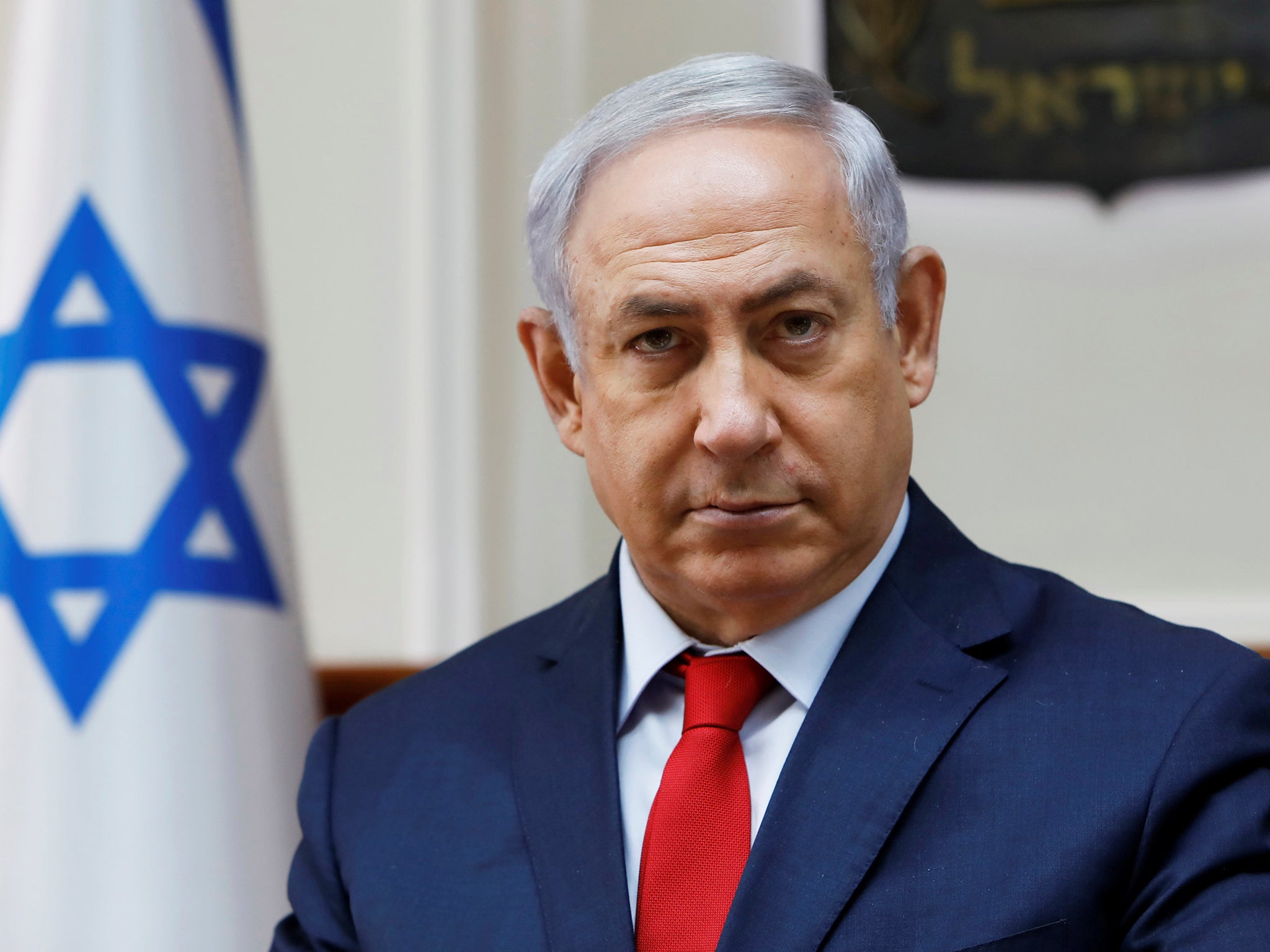This week a world leader much worse than Donald Trump is visiting the UK – but I don't see any protest from MPs
Netanyahu is the head of a regime that closes media companies, arrests journalists, jails Palestinian activists and human rights defenders without charge or trial, and tries children in military courts with a 99 perc ent conviction rate


Your support helps us to tell the story
From reproductive rights to climate change to Big Tech, The Independent is on the ground when the story is developing. Whether it's investigating the financials of Elon Musk's pro-Trump PAC or producing our latest documentary, 'The A Word', which shines a light on the American women fighting for reproductive rights, we know how important it is to parse out the facts from the messaging.
At such a critical moment in US history, we need reporters on the ground. Your donation allows us to keep sending journalists to speak to both sides of the story.
The Independent is trusted by Americans across the entire political spectrum. And unlike many other quality news outlets, we choose not to lock Americans out of our reporting and analysis with paywalls. We believe quality journalism should be available to everyone, paid for by those who can afford it.
Your support makes all the difference.That US President Donald Trump has not yet made an official visit to the UK is down to the entirely justifiable opposition such a prospect provokes.
Here is a man who ran a racist election campaign and brought hard-right nationalists into the corridors of power, who has open contempt for treaties and bodies like the United Nations.
Yet this week, Theresa May will welcome to London another world leader about whom the exact same – and much more – can be said: Israeli Prime Minister Benjamin Netanyahu.
His second time in London this year, Bibi’s visit is for no other reason than to mark the centenary of the Balfour Declaration, a document ably summarised by Gideon Levy as “an empire promising a land that it had not yet conquered to a people not living there, without asking the inhabitants”.
But while much of the focus – understandably – has been on the history, why is Netanyahu even a welcome visitor, given what is happening on the ground today?
The Likud leader heads a government eagerly pursuing settlement expansion across the West Bank, aiming to have advanced 12,000 settlement housing units this year.
Anti-Palestinian incitement and rejectionism is routine from senior Israeli politicians; as a recent AFP report noted, “prominent members of Netanyahu’s coalition openly oppose the idea of a Palestinian state and advocate annexing most of the West Bank.”
Just recently, Israel has approved both a significant enlargement of a settlement within a Palestinian neighbourhood of East Jerusalem, and the first settlement homes to be built in Hebron for 15 years.
Draft legislation include “the first practical move” to annex West Bank territories since 1967, while another bill declares that only Jews have the right to self-determination in Israel (not “Israelis”).
Palestinian citizens, of course, already face systematic discrimination – in the Negev, the community of Umm al-Hiran faces total destruction so that a Jewish community can be built in its place. A similar fate awaits Khan al-Ahmar in the West Bank.
Since the start of 2017, according to the UN, Israeli occupation forces have killed 46 Palestinians and injured 3,445, and have demolished 374 structures (displacing 588). There have also been 55 Israeli incursions into the Gaza Strip this year alone (I know, you probably didn’t hear about them).
Netanyahu is the head of a regime that closes media companies and arrests journalists, jails Palestinian activists and human rights defenders without charge or trial, and tries children in military courts with a 99 percent conviction rate.
This is (a fraction of) the Palestinians’ daily reality at the hands of the Israeli authorities. Yet Netanyahu will be welcomed with open arms by the British Government.
So, what should Britain be doing? Expressions of support for “peace” and pro forma statements of criticism are not enough. There is also no point in waiting for Israelis to elect a new government – as I wrote last week, the Israeli opposition merely wants a “smarter” apartheid.
Private censure and “constructive engagement” have also proven to be ineffective, as demonstrated by the issue of Palestinian children in Israeli military detention.
Last year, Israel cancelled a scheduled visit by a follow-up delegation of senior British lawyers who had authored a 2012 report on “Children in Military Custody”. Five years on, Israel still has not implemented recommendations from the original report – but with zero consequences.
What is urgently needed is action, and accountability. UK policy should reflect the asymmetry of the two parties (occupier and occupied), the importance of international law and human rights treaties as a reference point, and accountability for violations of that body of law and of those treaties.
Practical measures the British Government can take include suspending the granting of arms export licenses to the Israeli military, a ban on Israeli settlement produce, and tougher rules for charities regarding support for settlements, building on the recent Charity Commission warning.
The UK should condition bilateral ties with the Israeli government, including in relation to trade arrangements, on respect for international law and human rights.
“The past is not in the past”, wrote British Palestinian scholar-activist Yara Hawari in June, and “Britain continues to be complicit in the suffering of the Palestinians through its diplomatic and trade relations with Israel”. Ending that complicity would be the best form of apology.
Join our commenting forum
Join thought-provoking conversations, follow other Independent readers and see their replies
Comments